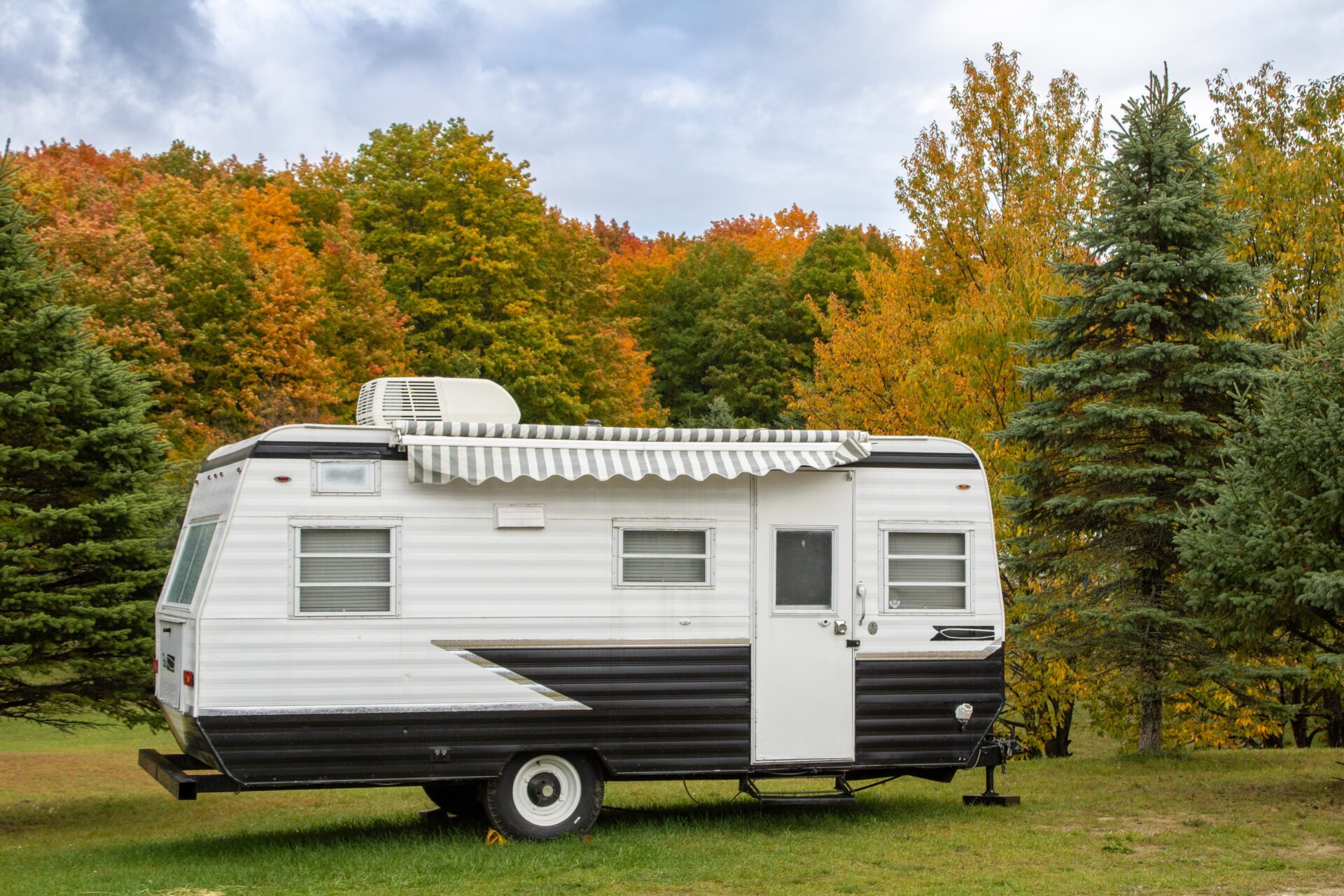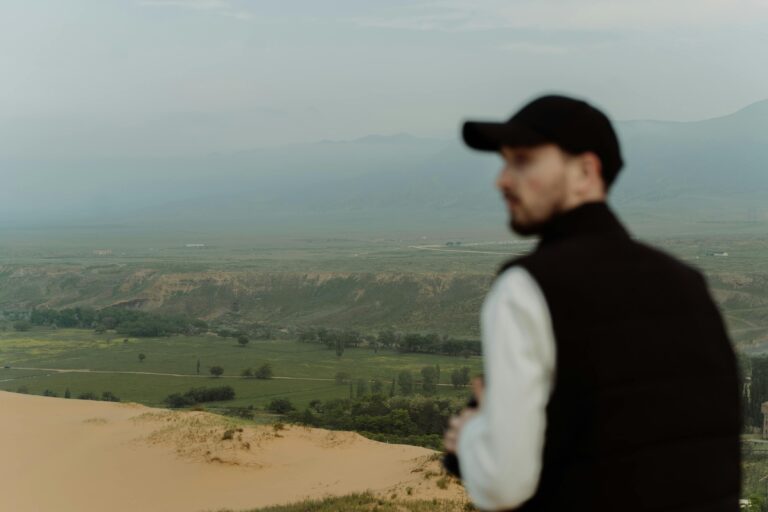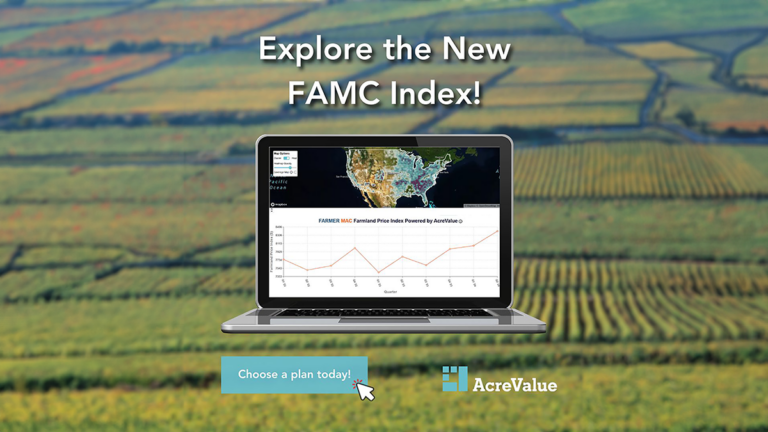You own the perfect parcel of land. Instead of building a homestead or weekend getaway home on it, you’re ready to park your RV and make the most of your beautiful acreage.
But can you?
It may be illegal to park or live in an RV, depending on your area, even if you own your property. In fact, whether or not you can buy land and live in an RV on it depends on various factors, including zoning laws, land use regulations, HOA restrictions, and more.
As a landowner, the best way to be prepared and avoid legal issues is to be informed. In this guide, we’ll walk through the requirements for parking or living in an RV on your own land.
Understanding the Rules Around Parking an RV on Private Land
Can I park my RV on land I own?
The answer to this common question depends on state and local restrictions. While owning land gives you certain rights, zoning laws ultimately determine whether you can live in an RV on your own land.
RV stands for recreational vehicle, meaning it primarily falls under recreational use. RVs are also designed for temporary living—the Department of Housing and Urban Development mandates that RVs are not intended for full-time use or permanent occupancy, as compared to mobile homes.
Instead, RVs are regulated for short-term recreation like camping and seasonal travel, rather than year-round fixed residence. This is why it’s often illegal to live in an RV, even on your own property. The exception is in areas that grant permits for residential RV use.
How to Check Local Zoning and Land Use Regulations
Zoning determines what land can be used for, such as residential, commercial, agricultural, and recreational. This, in turn, dictates the types of vehicles or structures that can be used on your acreage.
Since RVs are recreational, regulations vary widely when it comes to parking or living in an RV on private residential property. To avoid fines, landowners should carefully verify state and county zoning classifications.
Parking regulations for RVs can include: ,
- Driveway parking only (no street parking)
- Seasonal driveway parking
- Parking (not living) in a driveway, side yard, or rear yard
- Time limits on driveway parking (days or weeks)
Rules can differ between residential and agricultural land, as well as between counties in the same state. For example, certain counties in New York only allow full-time RV living in campgrounds or parks, while other counties require permits from local authorities.
Even if you’re just storing your RV on your land (and not living in it), it’s important to do your research.
Utility and Waste Disposal Considerations
If RV parking and living are allowed in your area, your next step should be to consider practical elements like power, water, and sewage access. Without ways to meet everyday needs like waste management or electricity, you won’t have much luck with long-term RV use.
In many cases, it’s possible to hook up an RV to your permanent home’s utilities. This DIY method is convenient for short-term RV usage on your full-time property. Just be sure to check local ordinances to confirm that it’s legal to dump waste into city sewage. In remote or off-grid areas, it can be more difficult to power your RV full-time, but not impossible.
Temporary vs. Permanent RV Living
Ultimately, there are two ways to use your RV: short-term stays and long-term living.
Short-term use is what RVs are intended for as recreational vehicles. This type of use could include overnight camping, vacations, seasonal travel, and more. When parked on your property, RVs can also serve as short-term accommodations for guests.
When it comes to long-term living, RVs are never categorized the same as mobile homes. That’s why many counties or municipalities only allow temporary RV stays unless you get a permit for your acreage.
When browsing land for sale for RV living, make sure that full-time residence is permitted before you buy.
HOA or Deed Restrictions to Watch For
In addition to local laws, many Homeowners Associations (HOAs) in planned communities or subdivisions have their own restrictions. HOA rules can include:
- 3-day parking limits
- Parking out of public view (no driveways or yards)
- No guest stays in your RV
If you live on an HOA property, be prepared for more restrictions on your RV parking and living.
Finding RV-Friendly Properties with Land.com
If you’re wondering, How can I buy land and live in an RV, look no further than Land.com, the nation’s leading platform for rural real estate. Using our convenient search filters, you can browse land for sale that aligns with your zoning, land use, size, and budget needs.
You can also enjoy expert insight by connecting with a local Land Pro. Explore all your options, confirm zoning restrictions, and close a deal with confidence and ease.
Hit the open road and find acreage that suits your ideal RV lifestyle with help from Land.com.
Sources:
RV Industry Association. What is an RV? https://www.rvia.org/advocacy/policies/what-rv/.
City of Colorado Springs. Colorado Springs, CO Code of Ordinances. https://codelibrary.amlegal.com/codes/coloradospringsco/latest/overview/.
RV Share. A Guide to Full-Time RV Living in New York. https://rvshare.com/blog/a-guide-to-full-time-rv-living-in-new-york/.
RV Share. The Cost to Install RV Hookups (& How To Tips) Updated Pricing for 2025. https://rvshare.com/blog/how-much-does-it-cost-to-install-rv-hookups/.
RV Life. 4 HOA Rules About RVs That Might Surprise You.https://rvlife.com/hoa-rules/.



